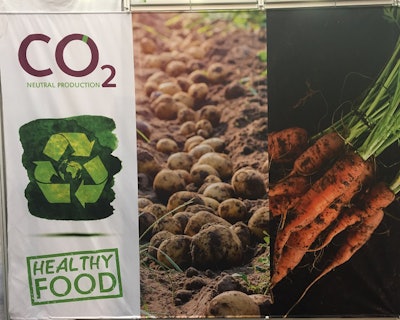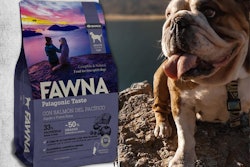
The sustainability trend in pet food has been on quite a ride for a few years now, thanks to ongoing consumer demand and the increasing opportunities for pet food manufacturers and suppliers to improve their companies by cutting costs, reducing waste, using less energy and similar environmentally (and business) friendly moves. Given all that, it’s no surprise that industry experts have named sustainability among their top two trends for three years now, from 2020 to 2022.
Of course, pet food is not the only sector in which sustainability has been fast gaining traction; for example, in human food, Innova Market Insights named it the top trend for 2022, labeled as “Shared Planet.” Yet concerns have also arisen that consumers may view sustainability and related claims and products in isolation from other important aspects of food, namely nutrition. Could this be a harbinger for sustainable pet food, too?
Survey: Consumers eating sustainably are ‘nutrition blind’
In a survey sponsored by Arla Foods, a dairy company headquartered in Denmark, 66% of consumers in that country, plus the U.K., Sweden and Germany, do not consider nutrition as part of a sustainable diet, according to an article by Missy Green on FoodIngredientsFirst.com. Of 8,000 consumers surveyed, nearly two-thirds said they try to make sustainable food choices, but only 34% claimed to associate nutrition with sustainable diets.
Similarly, 49% said they feel confused about how to eat sustainably, while 52% are seeking more information. Not only does this highlight a need for consumer education, Green wrote, but it could possibly have health consequences in terms of healthy diets. She included a warning from Judy Buttriss, former director general of the British Nutrition Foundation, who said consumers’ focus on “carbon footprint, biodiversity, packaging and animal welfare could have ‘unintended consequences on our health.’”
“It’s great that we continue to grow our awareness of how food production and our diets affect the climate and nature,” Buttriss said, quoted by Green. “However, this research shows that many people tend to overlook the other determinants of sustainable diets, especially nutrition. We need to bring nutrition back into the conversation.”
Or, perhaps every company in the human food industry—and possibly pet food?—needs to use the definition of a sustainable diet from the Food and Agriculture Organization (FAO) of the United Nations: “one that considers both the environmental impact and the nutritional value of the diet.”
“While more than half of the European population is overweight and every sixth person is obese, according to the World Health Organization, about 20% of the 2 billion people globally suffering from ‘hidden hunger’ are Europeans,” Green wrote. “Hidden hunger refers to low intakes of vitamins and minerals and exists in both developing and developed countries, often seen in combination with obesity.”
Is there a link to sustainable pet food?
How big of a risk is this for pet food? Considering that commercial diets for pets are intended (and regulated by laws) to be complete diets, providing all essential nutrients in the quantities needed by the specific species and often at specific life stages, perhaps it’s not likely that pet owners would overlook nutrition in their pursuit of sustainable pet foods.
Yet it still seems important for pet owners to understand that nutrition and sustainability should not be mutually exclusive, and certain parameters need to apply to ensure healthy pet food products. For example, products using only plant-based protein sources may meet dogs’ nutrient needs if formulated correctly; you can’t just directly transfer the vegan lifestyle for humans to feeding a dog. And such products usually do not meet cats’ needs because those pets are obligate carnivores that can derive some essential nutrients only from animal sources.
In other words, consumer education is just as necessary and viable with sustainable pet foods as it is with sustainable human food. At the very least, starting with a definition like FAO’s for a sustainable diet should help guide pet owners in making pet food choices that keep their pets healthy and thriving while still satisfying the owners’ desire to help nurse our planet back to health.


















